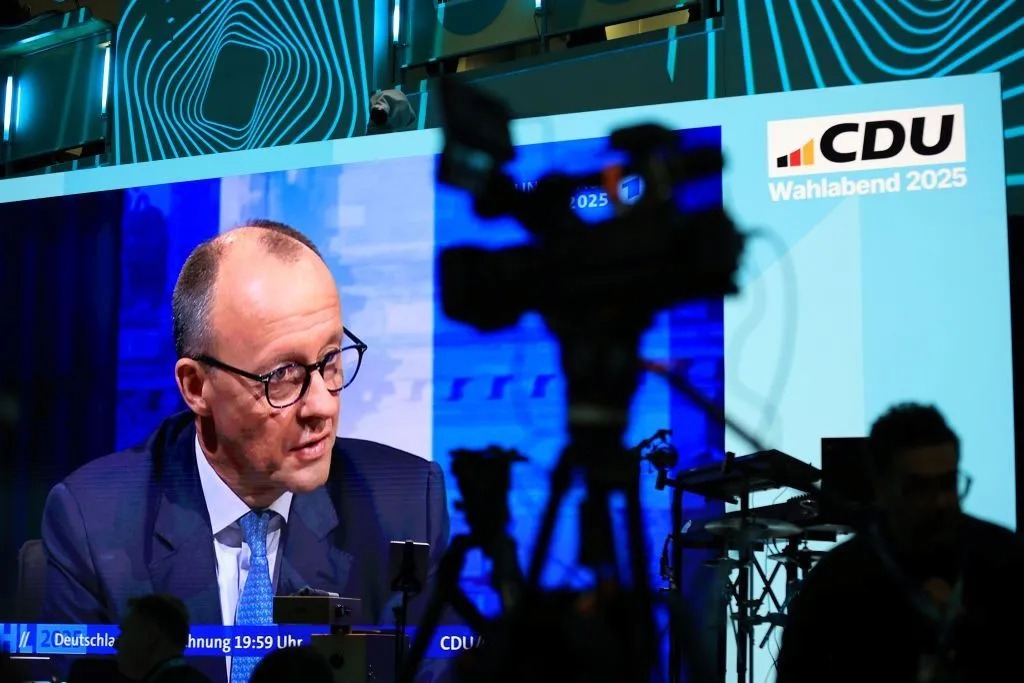
Merz Transatlantic Shift Rocks Europe
On February 23, 2025, Germany’s likely new Chancellor Friedrich Merz signaled the Merz transatlantic shift, declaring the US “indifferent” to Europe’s fate during a post-election debate. Hours after his Christian Democrats (CDU) won Sunday’s vote, Merz questioned NATO’s future and urged Europe to bolster its defenses—fast. A staunch Atlanticist, he stunned allies by equating Trump’s America with Russia as twin pressures on Europe, a tone unthinkable months ago. “My priority is to strengthen Europe for independence from the USA,” he said on ARD, hinting NATO’s June summit might birth a new European security order. This seismic pivot, unseen in 80 years since World War II, reflects Trump’s threat to ditch Europe’s 1945 security guarantees.
Merz’s urgency hit as UK PM Sir Keir Starmer and France’s Emmanuel Macron visited Washington—one on Monday, the other Thursday—while Germany, a Big Three power, felt sidelined. Trump’s Russia talks, excluding Ukraine, echo big-power politics, leaving Berlin “MIA” after its last government’s infighting. Merz aims to re-engage globally, backing Ukraine—Germany’s No. 2 aid donor after the US—though he’s coy on troops for a ceasefire, unlike France and the UK. Germany’s hesitancy historically bends to action; a “no” now may not stay firm. Voters, fretting over 35,000 US troops’ fate amid Trump’s planned cuts, made security a rare election focus alongside migration and a slumped economy.
Merz Transatlantic Shift Eyes Nuclear Future
The Merz transatlantic shift eyes a European nuclear umbrella with France and the UK, replacing US guarantees—a campaign idea now facing reality’s complexity. On February 21, a Berlin Holocaust memorial stabbing underscored security fears, with the far-right AfD (20% vote) pushing “Germany First” and Russian ties, mirroring Trump. Merz, rejecting AfD coalitions, told ARD, “We’re squeezed by two sides,” demanding European unity. Foreign Secretary David Lammy’s Monday sanctions on Russia bolster this, but Germany’s underfunded military—non-nuclear, unlike France and the UK—worries allies. For more, see BBC or Kenkou Land.
Main Body: A Leader’s Test Amid Uncertainty
Today, February 24, 2025, at 5:20 AM PST, the Merz transatlantic shift redefines Europe’s path. Post-election, Merz—who clinched under 30%—faces coalition talks with Scholz’s Social Democrats (16%) or others, needing cash for defense in a depressed economy. Trump’s indifference, voiced last week, jars a Germany hosting 35,000 US troops—voters fear their exit as Russia looms, fueled by Ukraine aid and missile strike risks. Merz’s nuclear talk with France and the UK, floated pre-vote, demands capability and trust, tricky with a “creaking” military.
The AfD’s record result complicates unity—its pro-Russia bent clashes with Merz’s Ukraine stance. Starmer’s Thursday Trump talks, post-Macron’s Monday visit, highlight Germany’s lag; Merz’s “FOMO” quip admits Berlin’s absence stings. At Sunday’s debate, he foresaw NATO’s form shifting by June—an “independent” Europe his fix. Economy and migration topped ballots, but insecurity ruled; November’s bunker plans reflect it. Will Merz’s CDU helm a bolder Germany, or will coalition and cash woes stall this shift? Europe watches—is it ready for his lead?





